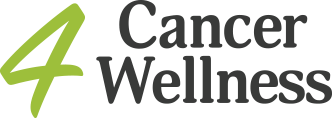When Cancer becomes a part of your life whether it’s you or someone you know, patients and family look for insights and information on how best to cope and cure the cancer, often with limited past cancer experience. Understandably there is an immediate collaboration between family and friends, searching the Internet for answers and no doubt finding a mind numbing volume of preventions, treatments and cures.
Those sources may be well intended, but it is near impossible to differentiate what is real. It is important to start your research with well-respected organizations where you can rely on the information.
Some of the most respected organizations include the American Cancer Society, the American Society of Clinical Oncology and the National Comprehensive Cancer Network, each providing excellent patient resources like CANCER.NET and NCCN.COM. Note, this should not be misconstrued as a comprehensive list, but rather a good place to start.
When it comes to information, beyond looking at the source, we need to see if the claims being made are logical. If a product claims to be good for every disease from diabetes, cancer and blood pressure or a product is great because it’s ‘all natural’ or the only product that can cure cancer; buyer beware.
This is not to say that wellness, healthy living, nutrition and exercise are not vitally important, however, it’s also important to acknowledge the false claim that traditional medicine can’t cure cancer, especially when the majority of cancer is currently being cured. Some advice sounds logical enough, but with more insight is actually misguided by being completely inaccurate, hiding under the mask of what at face value sounds natural or better because it’s alternative.
It’s just like ‘all vitamins are good for you’ and ‘more vitamins are better’.
Speaking of Vitamins, when it comes to Cancer there are many excellent resources, but oncologists often worry about overstated or false claims, fearing their patients may not focus on the important lifesaving or even curative treatments. It is also important to recognize oncologists today cannot cure all cancer patients, which unfortunately makes these patients understandably vulnerable to false claims and the latest quick cures.
This reality though should not negate the importance of vitamins. As we often say at 4CancerWellness, “Vitamins seem to lose priority when addressing curative treatments, but clearly there are appropriate vitamins and doses along with recognition that it’s best to avoid some vitamins as we truly address wellness in our cancer patients”. It is for this reason that SafeVite was developed, as there’s a lot of misinformation out there, especially when it comes to vitamins.
So, to reiterate; common misinformation includes; “vitamins are not important when it comes to cancer patients”. “Vitamins are natural and harmless”. “Vitamins levels aren’t affected by cancer treatments and elevated vitamin levels are never life-threatening”. “No vitamin addresses cancer treatment toxicities”, and the strange comment; “what vitamins you take do not matter”. Even stranger; “all vitamins are safe and ‘more’ must be better”. These comments are not wellness and definitely not wise. When it comes to cancer, choose SafeVite as a daily multivitamin and be wise.

